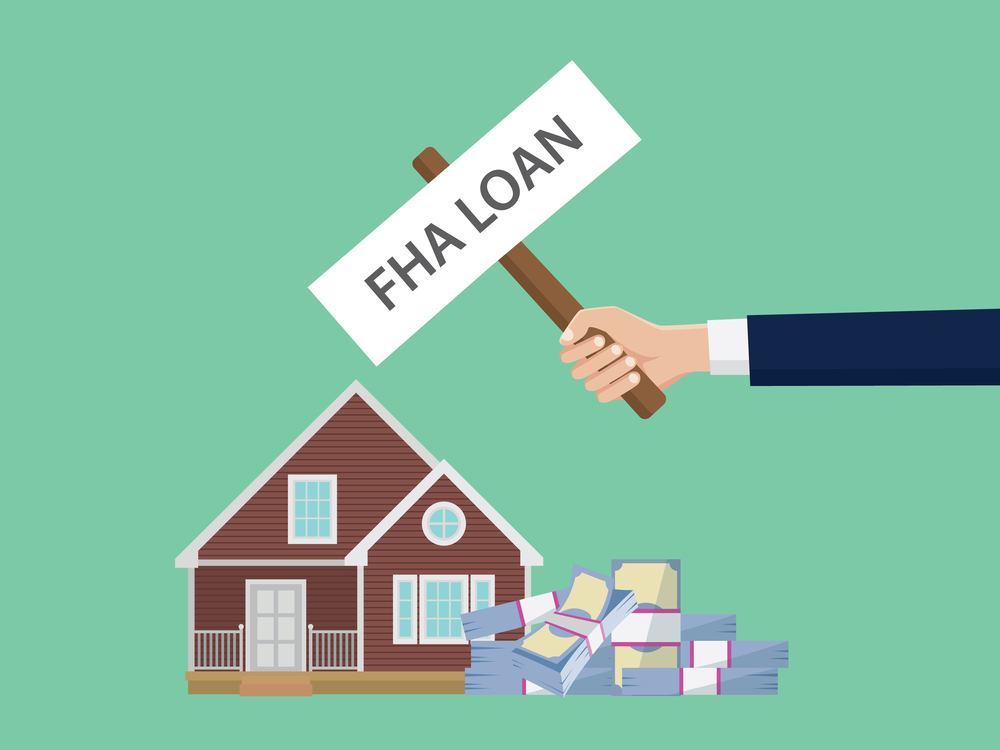Are you a Florida resident thinking about buying a home? An FHA loan may be just the financial vehicle you need.
Homeownership is synonymous with the American Dream. In fact, three-quarters of Americans say that owning a home is a bigger sign of prosperity than starting a family, having a great career, or graduating from a prestigious college.
Yet in our era of persistent inflation and high interest rates, many Americans may feel as though homeownership is out of reach. This feeling is even more pronounced in folks who have low credit scores or feel as though they’ll never be able to cobble together enough funds for a down payment.
If you’re looking to buy a home in Florida but are worried about how you might be able to afford it, you’ve come to the right place. Keep reading to learn more about FHA loans, the pros and cons of FHA loans, and why you should work with a broker to secure an FHA mortgage on your journey to homeownership.
What is an FHA loan?
An FHA loan is a type of mortgage backed by the Federal Housing Administration, an agency that operates under the Department of Housing and Urban Development. The loans are designed to make homeownership more accessible to individuals who may have a harder time qualifying for conventional mortgages. Since the loans are backed by the government, lenders are more likely to approve FHA loans for borrowers who might not qualify for more traditional mortgages.
FHA loans: Pros and cons
While FHA loans can help financially disadvantaged individuals become homeowners, like every financial vehicle they have their share of downsides. Before you start shopping for properties in Florida, it’s important to understand the pros and cons of FHA loans to determine whether they’re right for you.
Pro #1: Low down payment
FHA loans are appealing because first-time homebuyers can use them to buy homes even if they don’t have tons of cash for a massive down payment or have a suboptimal credit history. By securing an FHA loan, homebuyers in Florida can buy a property by putting as little as 3.5% down, so long as they meet credit score requirements. As a result, homeownership becomes more accessible, and buyers can enter the housing market sooner without incurring a massive financial burden.
Pro #2: Relaxed credit score requirements
FHA loans are more forgiving of lower credit scores than conventional loans. As a result, borrowers with less-than-perfect credit histories can still buy the home of their dreams in Florida. If your credit score is at least 580, you may be able to secure a home by putting 3.5% down.
If your credit score is lower than 580, you’re not entirely out of luck. You may still qualify for an FHA loan if your credit score is between 500 and 579, providing you’re able to put 10% down upfront.
Pro #3: Flexible debt-to-income ratio
Borrowers can qualify for FHA loans with higher debt-to-income (DTI) ratios, enabling would-be homeowners to still close on a house in Florida even if they have existing debt (e.g., credit card debt and student loans). This flexibility recognizes that individuals may have varying financial obligations, and enables them to qualify for a mortgage more easily.
Pro #4: Government-backed loans
Since FHA loans are backed by the government, lenders can approve loans for borrowers with less conventional financial profiles. As a result, FHA loans help increase access to mortgage financing, helping folks who might not qualify for traditional mortgages to still become homeowners in Florida.
Con #1: Additional costs
While FHA loans let borrowers buy houses while putting down less money, borrowers are on the hook for additional expenses they wouldn’t have to pay by taking a more conventional route. For example, FHA loans require both an upfront and annual mortgage insurance premium (MIP), which increases the overall cost of the loan.
While MIP makes homeownership possible with a low down payment, it adds an ongoing expense that borrowers need to cover each year. Since homeownership comes with tons of unexpected expenses — you never know when your dishwasher might fail — these costs can make it harder for homeowners to cover costs associated with things like home repairs and maintenance.
Con #2: Complex approval process
The approval process for FHA loans can be more involved than conventional loans. Unfortunately, this complexity may extend the timeline for loan approval and closing, potentially causing delays in the home-buying process. Avoid this fate by getting preapproved before you begin the house-hunting process in earnest.
Con #3: Lower loan limits
FHA loan limits vary by location and may restrict borrowers in high-cost areas. Buyers seeking more expensive homes may find FHA loan limits insufficient. As a result, they may have to seek alternative financing methods or temper their expectations when it comes to what kind of house they think they can afford.
Con #4: Property standards and appraisal challenges
FHA loans have specific property standards, and the appraisal process can be stringent. Properties must meet safety and livability requirements, potentially limiting choices and requiring additional steps to address property conditions.
In other words, just because you secure an FHA loan doesn’t mean you can have your pick of any house on the market. The lender will have to approve your choice.
What are the FHA loan requirements in Florida?

Many folks who become homeowners in Florida use FHA loans to finance their properties. In fact, together, Florida, Texas, and California accounted for 28.64% of all FHA loans in the United States issued in 2020.
If you’re thinking about applying for a mortgage, here are the FHA loan requirements Florida resident need to meet to be approved.
Credit score
If you’re looking to put down 3.5%, you’ll need a credit score of at least 580. You may be able to qualify for an FHA loan if your credit score is at least 500, but you’ll have to put down more money upfront — usually 10%.
Down payment
Whether you pay 3.5% or 10%, you’re going to need to put some significant sum of money down when you buy your new house in Florida. Down payment funds can come from savings, gifts from friends and family, windfalls, and even grants from state and local down payment assistance programs.
Debt-to-income ratio
While FHA loans allow for a higher DTI ratio than conventional loans, you’ll still need to make sure yours is no higher than 57%. Realistically, you should aim for something closer to 40% — or even lower.
Proof of employment
Lenders will also want to see you prove that you have a steady employment history and a reliable source of income. When applying for an FHA loan, lenders will want to review income documentation, like pay stubs, tax returns, and W-2 forms, along with bank statements and other financial records.
Residency and legal status
FHA loans are only available to U.S. citizens, lawful permanent residents, and eligible non-citizens. So, you’ll have to make sure you legally qualify for an FHA loan.
This list isn’t exhaustive, but it covers the main points. Suffice it to say that applying for an FHA loan — or any loan for that matter — is never a walk in the park. That being the case, you’re best off partnering with a mortgage broker who lives and breathes FHA loans and can walk you through the process, explaining all your options as only a trusted advisor can.
Why should I work with an FHA loan broker?
If you’re like most people, buying a house is one of the biggest decisions you’ll make in your life. While it’s certainly possible to navigate the complex process on your own, you’re much better off joining forces with an expert who knows FHA loans like the back of their hand. While it may be your first time buying a house, FHA loan brokers have gone through the process countless times and can provide priceless advice as you move closer to landing your dream house.

FHA loan brokers can offer several advantages along your journey to securing a mortgage.
Expertise and knowledge.
Brokers specialize in FHA loans and are well-versed in the intricacies of the program. Their expertise can be invaluable in guiding you through the application process and ensuring compliance with FHA requirements.
Access to multiple lenders.
Brokers often have relationships with multiple lenders, including those that offer FHA loans. This allows them to shop around for the best terms and rates on your behalf, potentially saving you money over the life of the loan.
Guidance on eligibility.
The right broker can assess your financial situation and advise you on your eligibility. They can help you understand the specific requirements — such as credit score thresholds and DTI ratios — and guide you toward improving your eligibility.
A fast, streamlined process.
Since they’ve gone through the process countless times, brokers can also expedite your FHA loan experience. They are familiar with all the paperwork and documentation required, reducing the likelihood of errors or delays in the approval process.
Personalized advice.
Brokers provide personalized advice tailored to your unique financial situation. They can offer insights into how FHA loans align with your homeownership goals and recommend the most suitable options for your needs.
Negotiation skills.
Whether it’s negotiating interest rates or other terms, having a broker in your corner can potentially lead to more favorable loan terms — saving you money over the life of the loan.
As you can see, working with a broker makes tons of sense. If you’re interested in buying a house in Florida using an FHA loan to finance the property, connect with an expert for free today to get the ball rolling
Disclaimer:
The content provided on this website is offered for educational purposes only. While we endeavor to provide accurate and up-to-date information, we make no representations or warranties of any kind, express or implied, about the completeness, accuracy, reliability, suitability, or availability of the content for any purpose. Visitors are advised to consult with qualified experts before making any financial decisions or taking any actions based on the information provided on this website.

